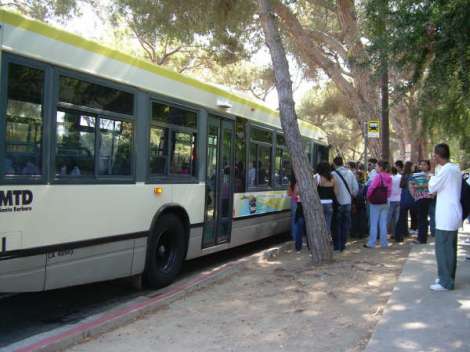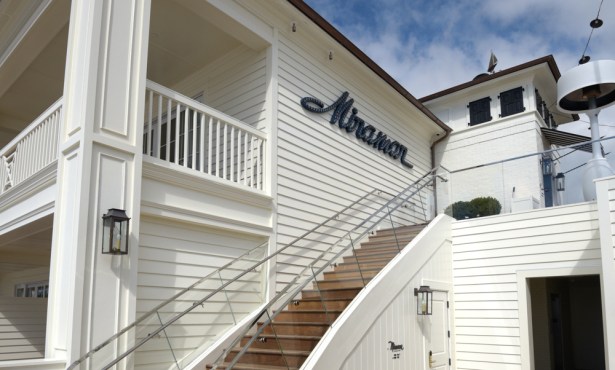Class Differences
What Does Santa Barbara's Socioeconomic Divide Mean for High Schoolers?

Talking about socioeconomic differences is practically taboo. Proof of this fact is that most high school kids don’t even recognize the word – but perhaps they ought to. Santa Barbara High serves families whose incomes reach well beyond $200,000 a year to those who are struggling to feed their families. Does this create a problem? I think so.
Most students agree that there are visual differences in class at SBHS, whether it is car models, brand-name clothes, or social behavior. But not everyone thinks this division is a problem. Several middle-class students believe that it’s not an issue at all, agreeing that there are different living conditions and lifestyles on campus, but “that’s the way life is.” As one student remarked, interaction between the class groups does occur, yet so long as everyone has their group of friends, it doesn’t really matter. These students thought any social differences were more an issue of race than money.

A working-class student disagreed. It’s difficult to find social activities or go on dates when different views about money are involved, he said. During school, he spoke of upper-class students being served before him and that he attracted stares because of his clothing, making him and other working-class students feel alienated. “We’re not ashamed,” he assured, but explained that “everyone is uncomfortable talking about it.”
So what is SBHS doing about its socioeconomic gap? Two middle-class students agreed that opportunities are provided for those who do not have a financial advantage, as long as one takes advantage of them. There’s support for athletic fees through fundraising, and fee waivers for Advanced Placement (AP) tests and field trips. One student replied, “School-wise, there are opportunities for everyone.”
But while the school provides financial aid, this doesn’t mean it has equal representation in all activities. A working-class student argued that in the school’s academies, it’s assumed that students can afford equipment fees. If not, parents are expected to volunteer at fundraisers to make up for it. While this may seem logical, lower-class parents are often working around the clock simply to make the cost of living in Santa Barbara, so they don’t have the extra time or energy to devote to volunteering. Furthermore, transportation by bus or taxi is expensive and time-consuming, making meetings even more difficult to attend. These factors have deterred applicants from lower classes, suggested the working-class student.
Furthermore, in the Associated Student Body (ASB) elections last spring, a number of candidates handed out promotional materials – flowers, stickers, candy, and the like – to boost their campaign. From what I heard, one student dropped out of the race because he knew he couldn’t afford to give out such incentives. As a result, who won the election? What representation does our student council consist of?
Even in the classroom, I feel that socioeconomic differences can become an issue. Upper-class families often want their kids to be in the GATE program, calling counselors and trying to steer their students onto a college-driven path. Luckily, AP courses are open to students of any level, although most students are still from the upper-class, and are perhaps even expected to take that course-load by their parents. As an upper-class student mentioned, society expects his class to rise to the top, a move that’s backed by historical evidence. Has anything changed today?
What can be done about socioeconomic differences, if anything? For starters, we could start by becoming aware of the struggles that different classes face. One student suggested that if everyone was singly placed in a situation with people of different backgrounds and forced to interact, they’d be surprised.
There’s a lot more than money that brings people together. And quite frankly, if that’s not the case, what’s the reason to socialize at all?
For more of “The Senior File” by SBHS senior Amy Chong, see Independent.com/theseniorfile.



